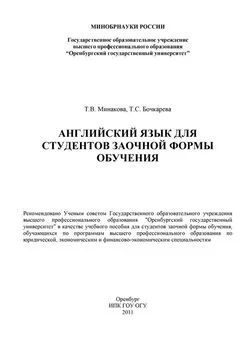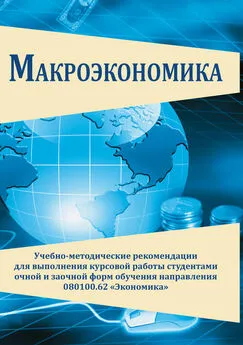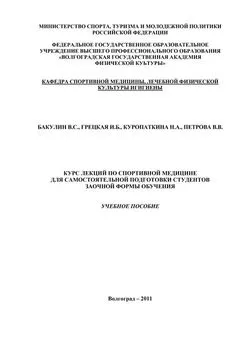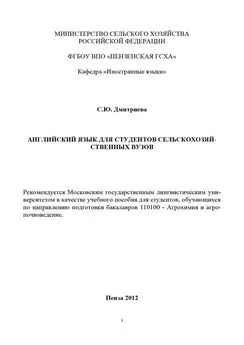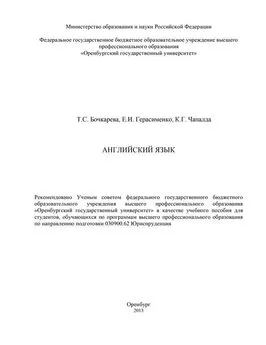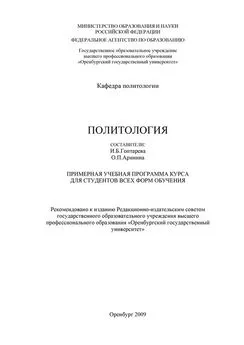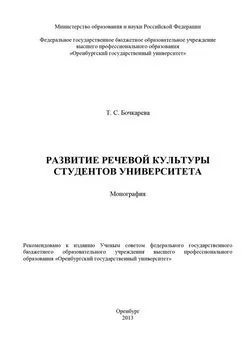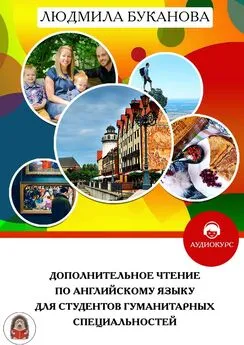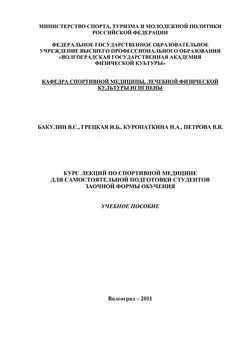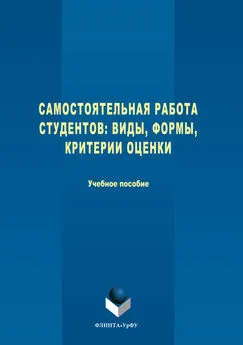Татьяна Бочкарева - Английский язык для студентов заочной формы обучения
- Название:Английский язык для студентов заочной формы обучения
- Автор:
- Жанр:
- Издательство:Литагент БИБКОМ
- Год:2011
- Город:Оренбург
- ISBN:нет данных
- Рейтинг:
- Избранное:Добавить в избранное
-
Отзывы:
-
Ваша оценка:
Татьяна Бочкарева - Английский язык для студентов заочной формы обучения краткое содержание
Английский язык для студентов заочной формы обучения - читать онлайн бесплатно ознакомительный отрывок
Интервал:
Закладка:
Exchange rates, determined by the foreign exchange markets around the world, reflect the markets' view of each country's economic and political situation. By using exchange rates, a salary in yen in Tokyo can be converted into U.S. dollars to make it comparable to a salary in Los Angeles. Or it can be converted into French francs to make it comparable to a salary in Paris.
Because the cost of living varies widely from one country to another, however, it is difficult to translate salaries by simply using currency exchange rates. If an apartment costs three times as much in Tokyo as in Los Angeles or Paris, a higher salary in Japan does not necessarily mean a Japanese worker is better off than an American or French worker.
It is sometimes more valuable to look at what salaries will actually buy in each country. A salary's "purchasing power" tells us how many goods and services it can actually buy. Comparing the cost of a group of goods and services from country to country, therefore, gives us a more reliable exchange rate, called purchasing power parity (PPP). The PPP exchange rate is calculated by looking at the cost of groceries and other items such as vacation trips, automobiles, insurance, and rent in different countries.
By choosing this basket of goods and services and calculating their cost in different countries around the world, we can compare the purchasing power or "real" value of salaries from country to country. Although one country may be richer in terms of the amount of money each citizen owns or earns, what counts in the long run is what each person can do with this wealth.
2.1.4.2 Ответьте на вопросы по тексту В
1 How can a nation’s wealth be determined?
2 What do the exchange rates tell us?
3 What do the exchange rates reflect?
4 Does the cost of living vary from one country, to another?
5 What tell us how much goods and services a person can buy?
6 How can we compare salaries in different countries?
7 What do we call “purchasing power parity” (PPP)?
8 What is PPP exchange rate calculated by?
9 How can we compare the purchasing power?
10 In what terms may one country be richer than another country?
Тексты, лексические программы для студентов специальности «Юриспруденция»
2.1.4.3 Задание 1. Прочитайте и запомните следующие слова и словосочетания:
procurator's office – прокуратура;
application and observance of laws – применение и соблюдение законов;
to investigate – расследовать, рассматривать (дело);
criminal case – уголовное дело;
evidence – улика, свидетельское показание;
to appeal – аппелировать, подавать аппеляционную жалобу;
prosecution – отстаивание (исковых требований).
court – суд, судья;
to administer juctice – отправлять правосудие;
first instance – первая инстанция;
to examine a case – рассматривать дело;
in substance – по существу;
to bring in a sentence – выносить приговор;
judgement – судебное решение, приговор;
judicial organ – судебный орган;
to try – разбирать, рассматривать дело;
assessor – заседатель, асессор;
proceeding(s) – судебное разбирательство;
trial – судебный процесс, разбирательство;
victim – потерпевший, жертва;
accused – обвиняемый;
plaintiff – истец;
defendant – обвиняемый, ответчик, подсудимый, подзащитный.
law – право, закон;
rule – правило, норма права;
to deal with – иметь дело;
legal – юридический, законный, правовой, судебный;
executive – исполнительный;
taxation – налогообложение, таксация (судебных издержек);
civil law – гражданское право;
property – собственность, право собственности;
institution – основание.
to provide for – обеспечивать;
encroachment – посягательство;
to regard – рассматривать;
to commit – совершать;
guilt – вина;
intoxication – опьянение;
to release – освобождать;
exceptional – исключительный;
to enumerate – перечислять.
judicial – судебный;
people's assessors – народные заседатели;
to be in session – заседать;
majority – большинство;
to determine – определять;
equal standing – равная правоспособность;
to exclude – исключать;
to appeal – обращаться;
to supervise – осуществлять надзор, наблюдать;
to exercise supervisory – осуществлять надзор;
observance – соблюдение;
application – применение;
to see to – присматривать;
according to – в соответствии с. … as a rule – как правило;
premeditated – предумышленный;
intent – намерение;
to put into effect – приводить в действие;
to plot – замышлять;
to depend on – зависеть от;
to contain – содержать;
to abandon – отказываться;
corpus delicti – состав преступления.
2.1.4.4 Задание 2. Прочитайте тексты А, В, С, D, E, F переведите их письменно
Text A. The Procurator’s Office
The Procurator's Office is a state organ that ensures the correct application end observance of the state's laws by all ministries, organisations persons in office and all the citizens. It also protects the personal rights of citizens. It investigates criminal cases, collects evidence against criminals and sees to it that other investigating organs act according to the law.
The procurator has the right to appeal against any unlawful decisions and actions of state organs and persona in office. The procurator maintains prosecution before the court in the name of the state.
Text B. The Courts in our Country
The court is an organ of state that administers justice on the basis of the laws of the state.
There are courts of first instance and second instance. A court of first instance examines a case in substance and brings in a sentence or a judgement. A court of second instance examines appeals and protests against sentences and judgements of courts of first instance.
The basic judicial organ is the district court. It tries both criminal and civil cases. The district court consists of a judge and two assessors. Cases are tried in public and proceedings are oral. The participants in the trial (the victim, the accused, the plaitiff, the defendant and others) speak in open court. The accused has the right to defence.
The higher courts are city courts, regional courts and others. These courts hear and determine more important cases. They also sit as courts of appeals.
The highest judicial organ is the country's Supreme Court supervising the activities of all the judicial organs of the state.
As a court of first instance it tries the most important criminal and civil cases. It also hears appeals against sentences and judgements of lower courts.
Text C. The System of Law in our Country
Law is a system of rules established by the state.
The main aim of law is to consolidate and safeguard the social and state system and its economic foundation. The system of law in our country consists of different branches of law.
Constitutional law is а leading branch of the whole system of law. It's principal source is the country's Constitution. It deals with social structure, the state system, organization of state power and the legal status of citizens.
Administrative law is closely connected with constitutional law but it deals with the legal forms of concrete executive and administrative activity of a government and ministries.
Financia1 law regulates the budget, taxation, state credits and other spheres of financial activity.
Civil law is connected with relations in the economic sphere of social life, with relations involving property, its distribution and exchange. The right in property is the central institution of civil law.
The rules of labour law include the legislation on the labour of industrial and office workers and regulate matters arising from labour relations.
Criminal law defines the general principles of criminal responsibility, individual types of crimes and punishment applied to criminals.
Criminal law takes the form of a criminal code consisting of a general and special part.
Text D. Criminal Law
Criminal Law is to provide for the Russian social and state system, personal property and the personal rights of citizens against criminal encroachments.
Criminal Law defines the acts which are socially dangerous and mustbe regarded as crimes. It lays down the penalties that should be applied to persons committing these crimes. Here are some leading principles of Russia Criminal Law:
1 A person may be charged with criminal responsibility only when he has committed an act specially provided for in Criminal Law.
2 Responsibility can exist only in the presence of guilt.
3 Criminal punishment shall be applied only by sentence of the court.
4 Persons committing crimes in a state of intoxication are not released from criminal responsibility.
5 The death sentence may be passed as an exceptional penalty in cases specifically enumerated in law.
Text E. The Russian Court and the Procurator’s Office
The Russian Court is an organ of state that administers justice on the basis of the laws of the Russian State.
The basic Russian judicial organ is the district People's Court which consists of a judge and two people's assessors having the rights of a judge when the court is in session.
The district People's Court hears the majority of the cases. More important cases such as the crimes against the state are determined by the regional court or a court of equal standing.
The Supreme Court of Russia is the highest judicial organ of the Russia State. It is charged to supervise the work of all judicial organs.
The Procurator's Office is established to exercise supervisory power over the strict observance and application of the law by all organizations, officials as well as by all citizens of the country.
Other duties of the Procurator's Office are to investigate criminal cases, collect evidence against the criminals and see to it that other investigating bodies act according to the law.
So it may be said that the Procurator's Office, like all the Russian courts, protects legality, law and order.
Text F. Stages of Criminal Activity
As a rule, premeditated criminal activity consists of several stages: preparation, attempt and commission.
Preparation of a crime is the search for an adaptation of means or instruments, or any other premeditated creation of combinations for the commission of a crime. Preparation of a crime is generally a punishable offence. But in determining the penalty, the court must take into consideration the extent of. the danger to society involved in the preparations, the degree to which the criminal intent has been put into effect, and the causes that prevented the full commission of the crime. In cases where the person plotting a crime has not gone beyond the preparation the court usually imposes a milder penalty or none at all. An attempt is a premeditated act directly aimed at the commission of a crime but not completed for reasons not depending on the will of the guilty person.
Читать дальшеИнтервал:
Закладка:
